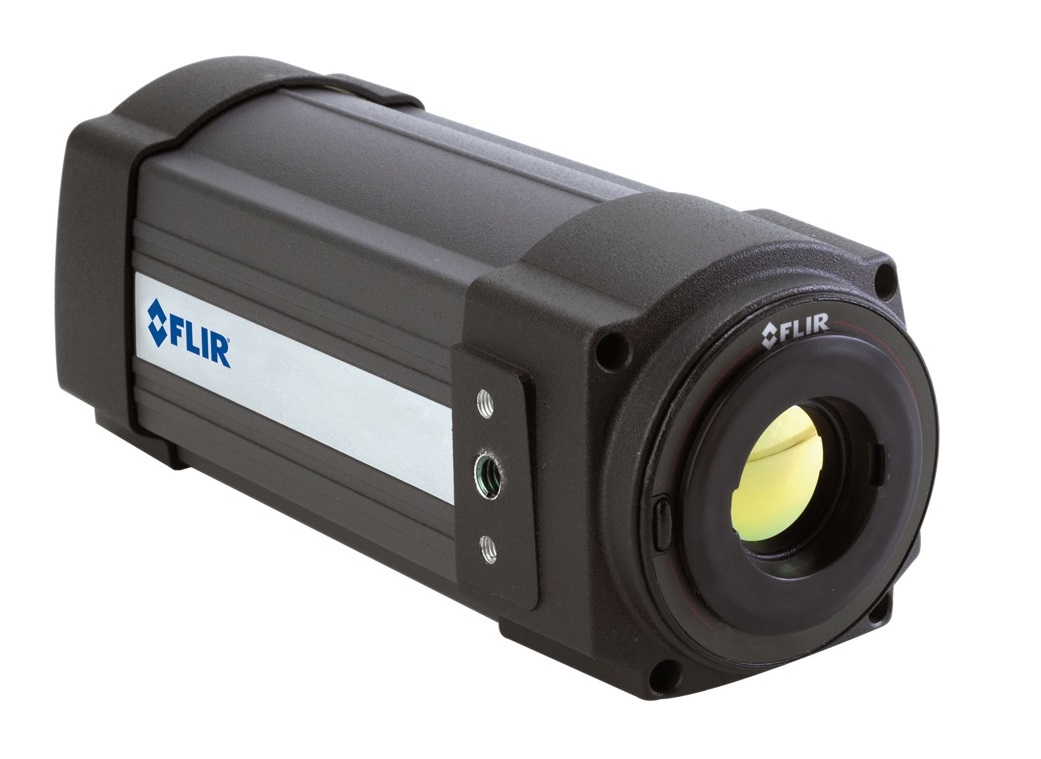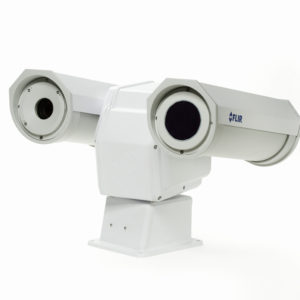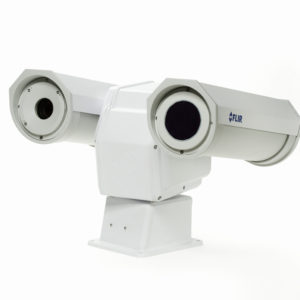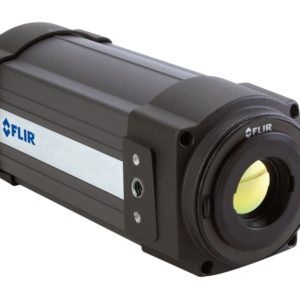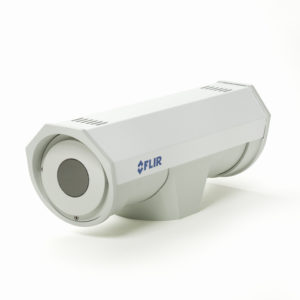The FLIR A310 provides an affordable and accurate temperature measurement solution for anyone who needs to solve problems that need built in “smartness” such as analysis, alarm functionality, and autonomous communication using standard protocols. The FLIR A310 also has all the necessary features and functions to build distributed single- or multi-camera solutions utilizing standard Ethernet hardware and software protocols.
The FLIR A310 also has built in support to connect to industrial control equipment such as PLCs, and allows for sharing of analysis and alarm results and simple control using the Ethernet/IP and Modbus TCP field bus protocols.
Key features:
- Support for EthernetIP field bus protocol (analyze, alarm, and simple camera control).
- Support for Modbus TCP field bus protocol (analyze, alarm, and simple camera control).
- Built-in extensive analysis functionality.
- Extensive alarm functionality, as a function of analysis and more.
- On schedule: file sending (FTP) or e-mail (SMTP) of analysis results or images.
- On alarms: file sending (FTP) or e-mail (SMTP) of analysis results or images.
- MPEG-4 streaming.
- PoE (Power over Ethernet).
- Built-in web server.
- General purpose I/O.
- 100 Mbps Ethernet (100 m cable, wireless, fiber, etc.).
- Synchronization through SNTP.
- Composite video output.
- Multi-camera utility software: FLIR IP Config and FLIR IR Monitor included.
- Open and well-described TCP/IP protocol for control and set-up.
- 16-bit 320 × 240 pixel images at 7–8 Hz, radiometric.
- Lenses: 25° included, 15° and 45° optional.
Typical applications:
- Safety with temperature alarms (multi-camera applications), fire prevention, critical vessel monitoring, and power utility asset management.
- Volume-oriented industrial control (multi-camera installation is possible).
Description
Technical Specifications:
| Imaging and optical data | |
| IR resolution | 320 × 240 pixels |
| Thermal sensitivity/NETD | < 0.05°C @ +30°C (+86°F) / 50 mK |
| Field of view (FOV) | 25° × 18.8° |
| Minimum focus distance | 0.4 m (1.31 ft.) |
| Focal length | 18 mm (0.7 in.) |
| Spatial resolution (IFOV) | 1.36 mrad |
| Lens identification | Automatic |
| F-number | 1.3 |
| Image frequency | 30 Hz |
| Focus | Automatic or manual (built in motor) |
| Zoom | 1–8× continuous, digital, interpolating zooming on images |
| Detector data | |
| Detector type | Focal plane array (FPA), uncooled microbolometer |
| Spectral range | 7.5–13 µm |
| Detector pitch | 25 µm |
| Detector time constant | Typical 12 ms |
| Measurement | |
| Object temperature range | –20 to +120°C (–4 to +248°F) 0 to +350°C (+32 to +662°F) |
| Accuracy | ±2°C (±3.6°F) or ±2% of reading |
| Measurement analysis | |
| Spotmeter | 10 (with no image streaming) |
| Area | 10 boxes with max./min./average/position (with no image streaming) |
| Isotherm | 1 with above/below/interval |
| Measurement option | Measurement Mask FilterSchedule response: File sending (ftp), email (SMTP) |
| Difference temperature | Delta temperature between measurement functions or reference temperature |
| Reference temperature | Manually set or captured from any measurement function |
| Atmospheric transmission correction | Automatic, based on inputs for distance, atmospheric temperature and relative humidity |
| Optics transmission correction | Automatic, based on signals from internal sensors |
| Emissivity correction | Variable from 0.01 to 1.0 |
| Reflected apparent temperature correction | Automatic, based on input of reflected temperature |
| External optics/windows correction | Automatic, based on input of optics/window transmission and temperature |
| Measurement corrections | Global and individual object parameters |
| Alarm | |
| Alarm functions | 6 automatic alarms on any selected measurement function, Digital In, Camera temperature, timer |
| Alarm output | Digital Out, log, store image, file sending (ftp), email (SMTP), notification |

